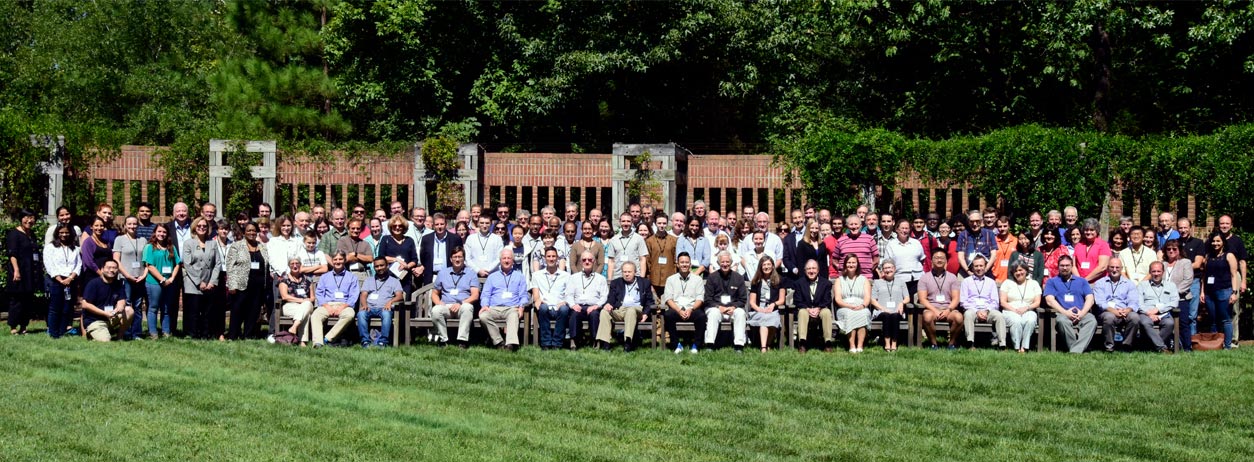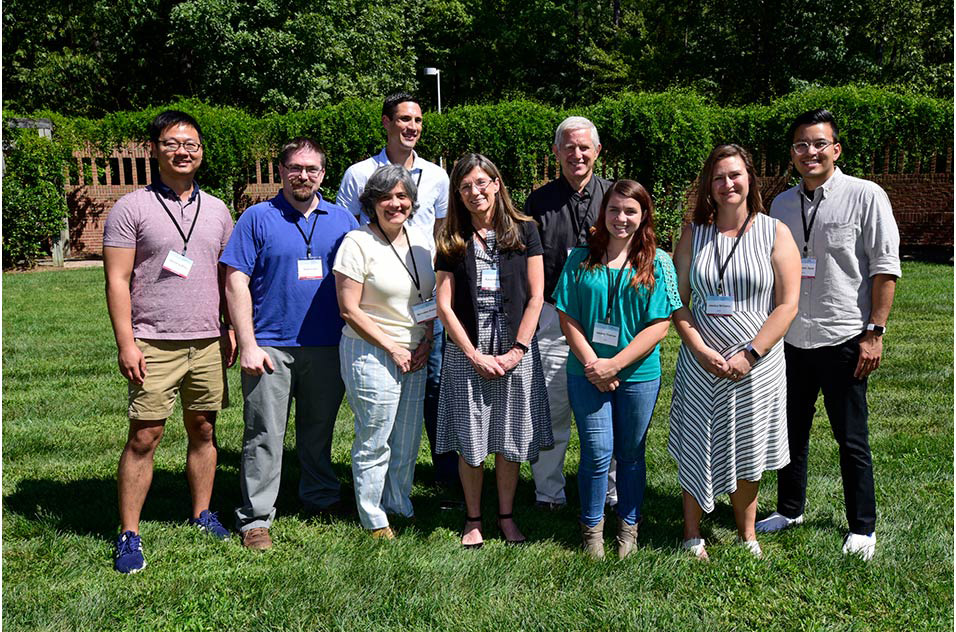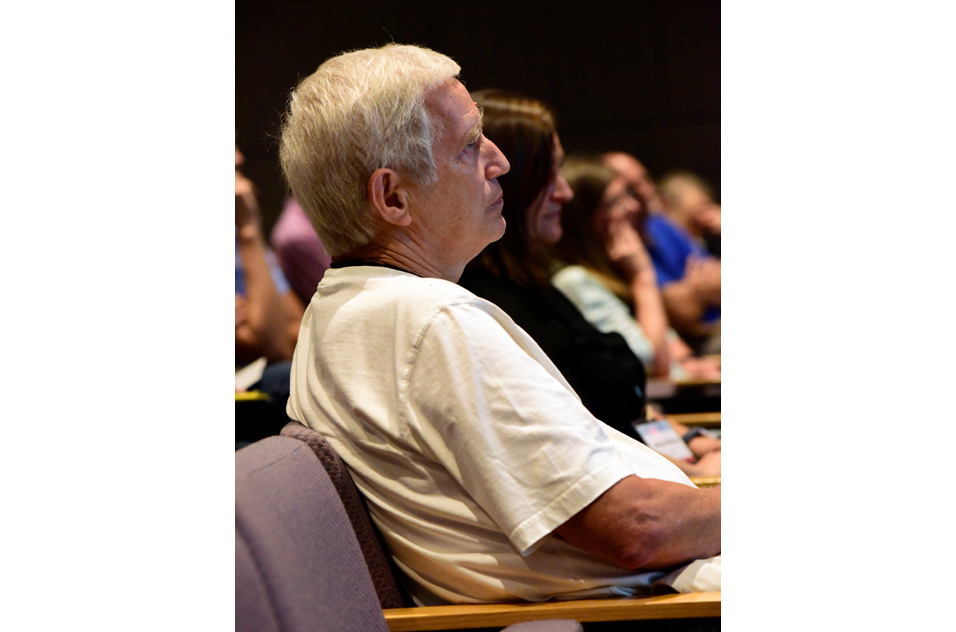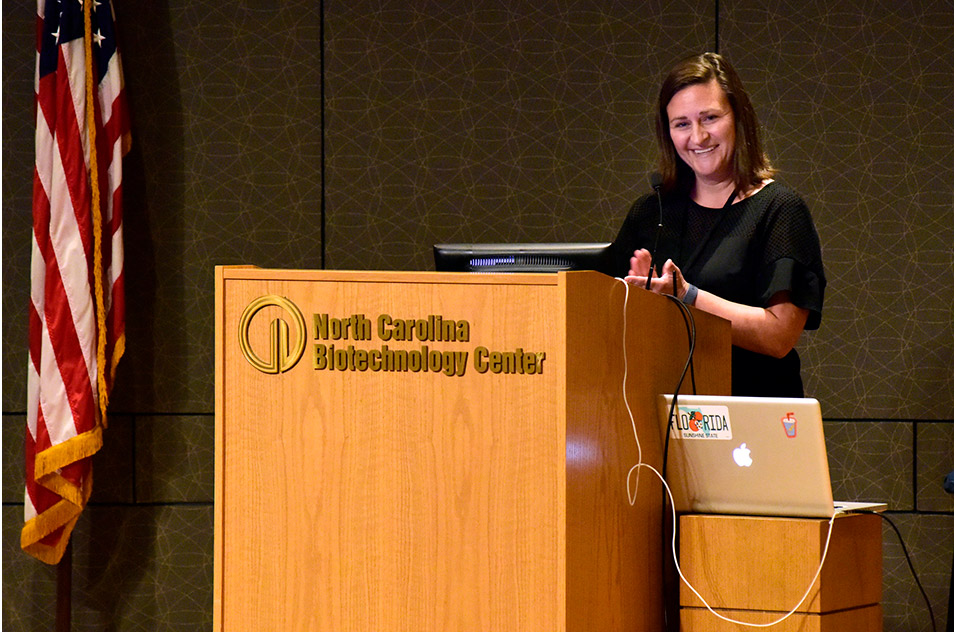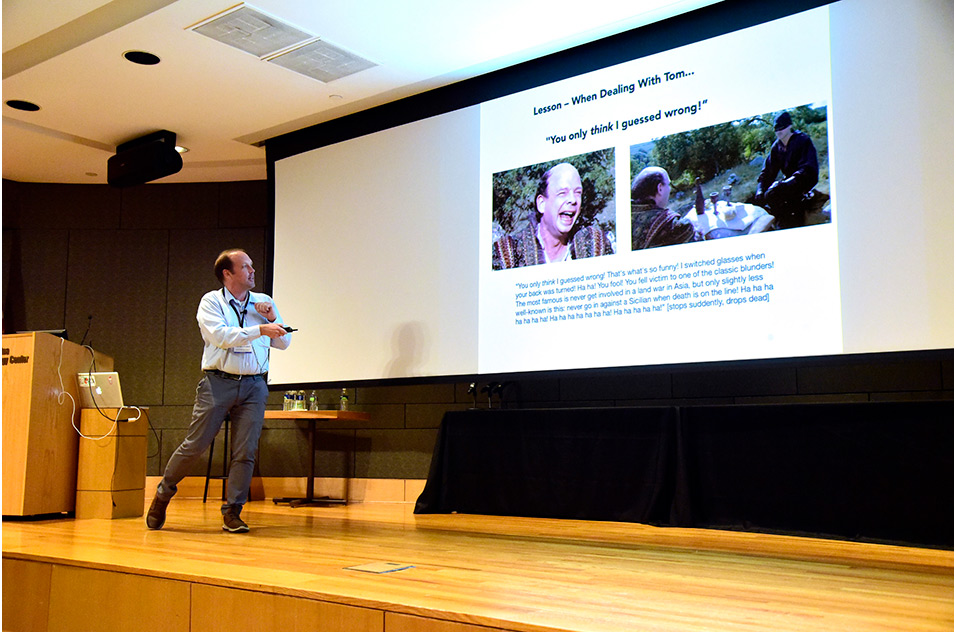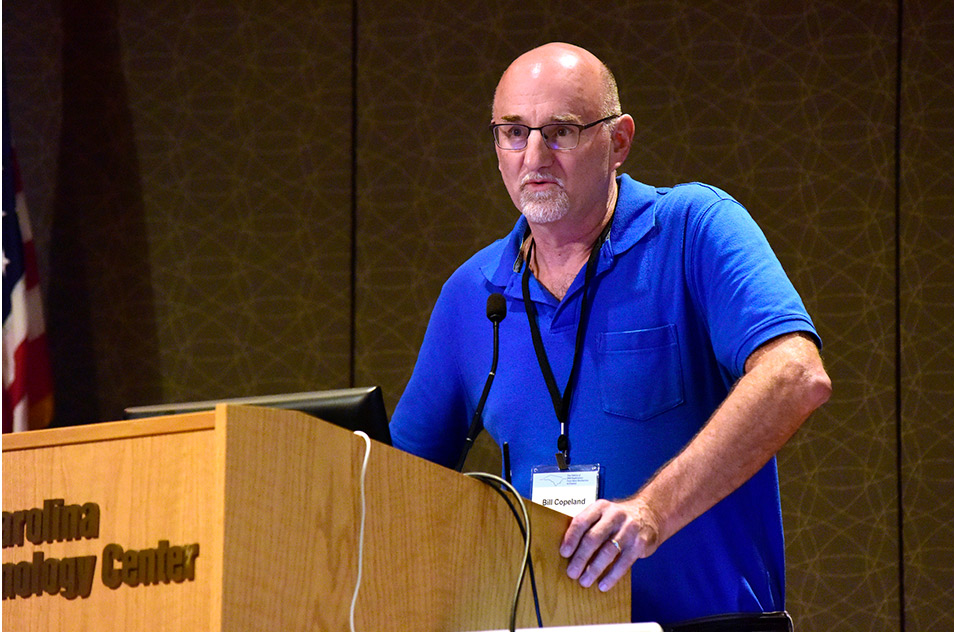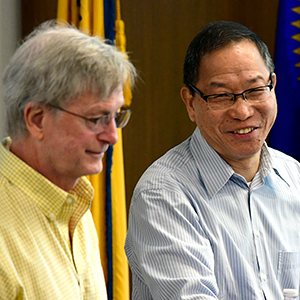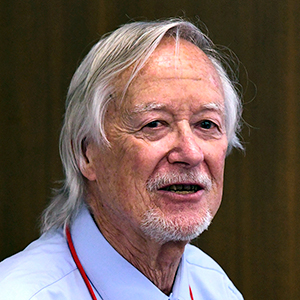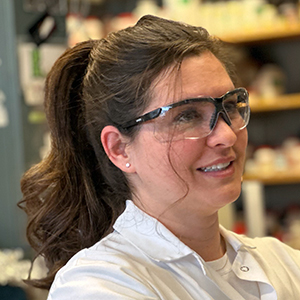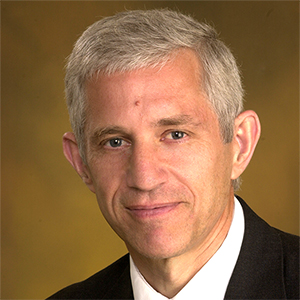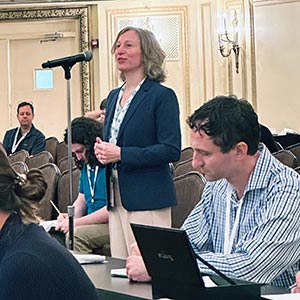During his 37 years at NIEHS, Thomas Kunkel, Ph.D., has made significant contributions to his field of scientific research, showing how DNA damage can result in genetic mutations that increase the risk of disease. He also has positively influenced the careers of dozens of colleagues, collaborators, and postdoctoral trainees.
Many of them met at a symposium honoring Kunkel titled “The Fidelity of DNA Replication: From Basic Mechanism to Disease.” Held August 29-30 in Research Triangle Park, North Carolina, the lively celebration coincided with his 70th birthday.
A leader in his field
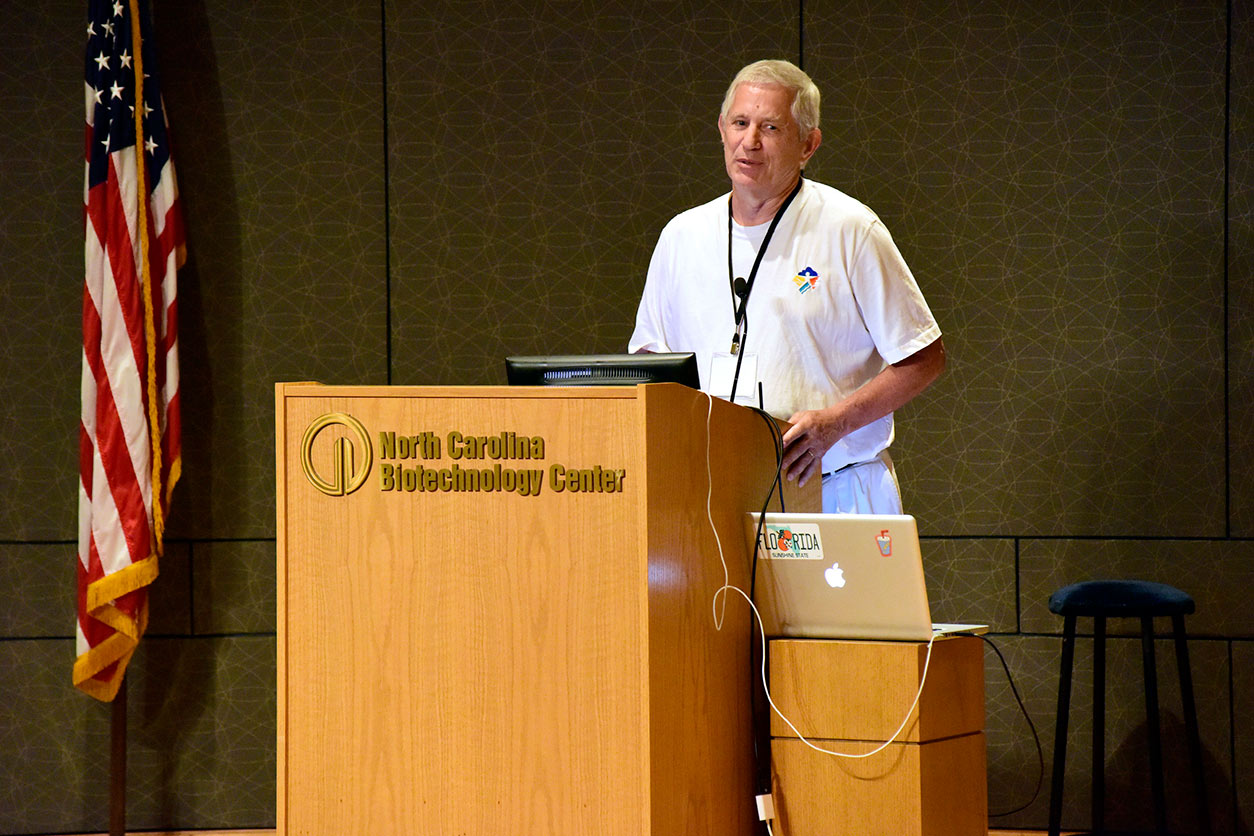 “I really appreciate all the kind comments that I heard both about the science and me personally,” said Kunkel. “I can’t tell you how much that touches me.” (Photo courtesy of Steve McCaw)
“I really appreciate all the kind comments that I heard both about the science and me personally,” said Kunkel. “I can’t tell you how much that touches me.” (Photo courtesy of Steve McCaw)Kunkel, head of the NIEHS DNA Replication Fidelity Group, is a world-renowned scientist. His work shows how DNA damage can disrupt replication, a key process in which DNA is copied during cell division. Errors in that process, or lack of fidelity, can lead to gene mutations that can predispose individuals to cancer and other diseases.
In 1985, three years after joining NIEHS, Kunkel gained wide recognition for developing a new way to cause mutation at a specific site on DNA. His method provided researchers with a better way to target gene mutations and study their effects on DNA, RNA, and protein functioning.
By 2011, his extensive research into DNA replication fidelity and publications in high-impact journals earned him the title of National Institutes of Health Distinguished Investigator. Three years later, he was inducted into the American Academy of Arts and Sciences.
At the symposium, speakers praised Kunkel’s numerous career accomplishments. Many said they were equally impressed by his boundless scientific curiosity and generous spirit.
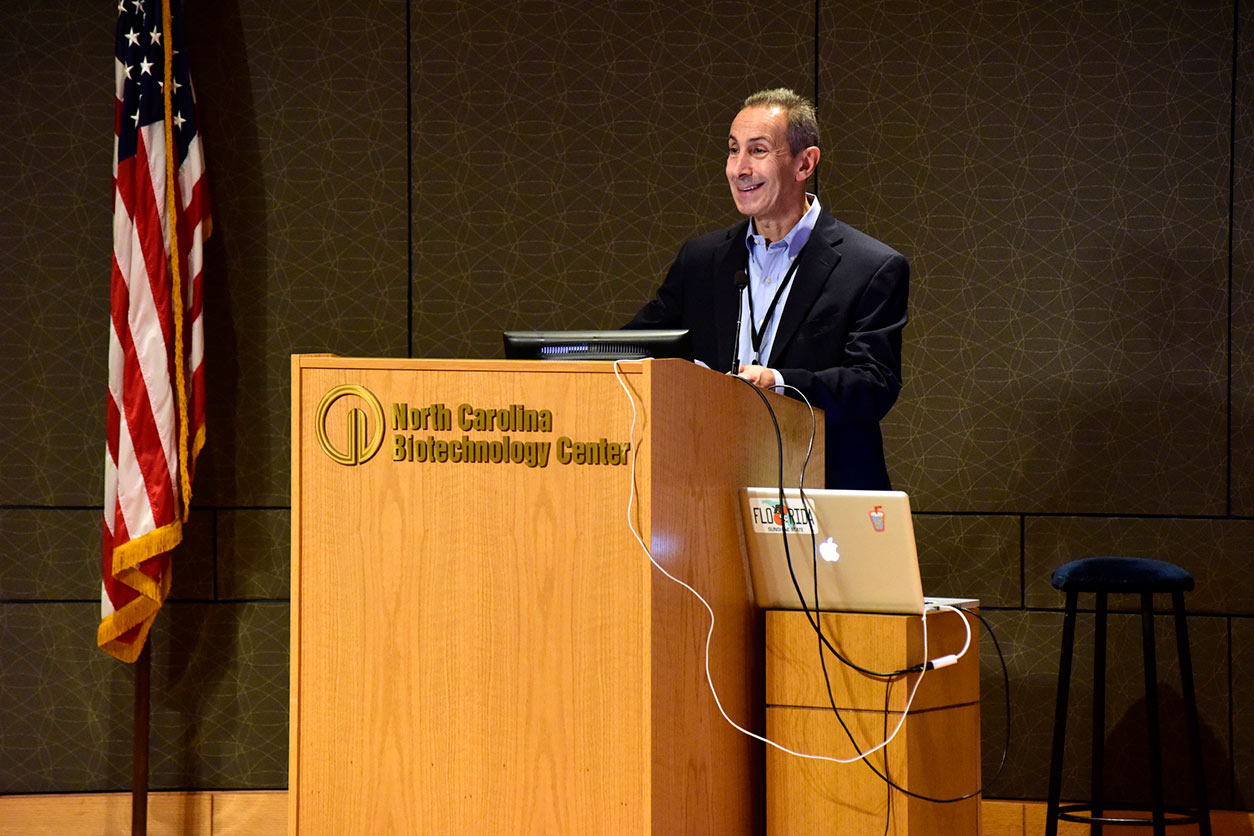 Zeldin welcomed attendees and highlighted Kunkel’s career accomplishments. (Photo courtesy of Steve McCaw)
Zeldin welcomed attendees and highlighted Kunkel’s career accomplishments. (Photo courtesy of Steve McCaw)“Tom’s scientific career has impacted countless scientists around the globe,” said NIEHS Scientific Director Darryl Zeldin, M.D., during his opening remarks. “His inquisitive mind and relentless pursuit of the truth will no doubt continue to inspire many for years to come.”
Good presentations, good humor
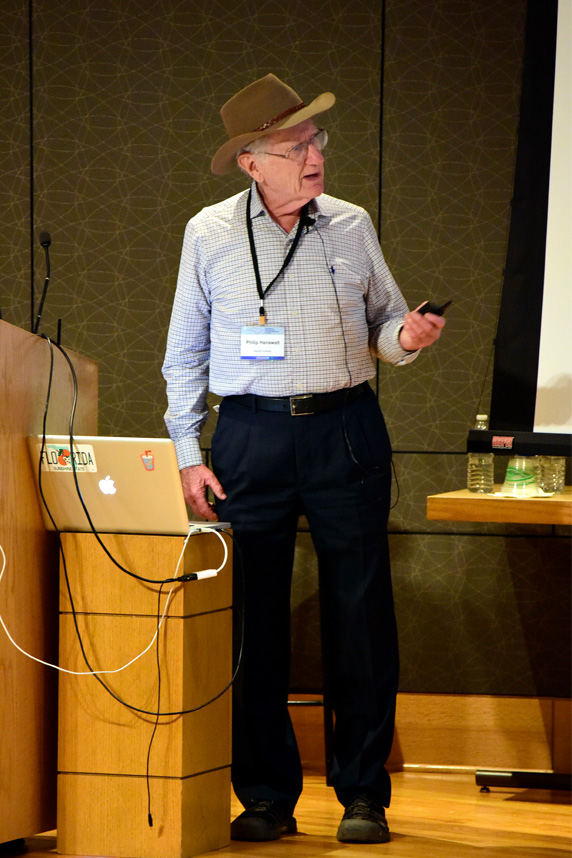 Hanawalt, wearing his Akubra hat, brought laughter to the audience. (Photo courtesy of Steve McCaw)
Hanawalt, wearing his Akubra hat, brought laughter to the audience. (Photo courtesy of Steve McCaw)Following Zeldin’s talk, academics from universities in the U.S. and abroad, many of whom have collaborated with Kunkel or received mentorship from him, presented their research.
Some examined DNA polymerases, which are enzymes necessary for DNA replication. Others discussed genome maintenance and how it helps to prevent disease.
In-depth scientific talks were mixed with lighthearted banter. Several speakers shared amusing personal stories involving Kunkel and pictures of him at various conferences.
Philip Hanawalt, Ph.D., an emeritus biology professor at Stanford University, told a story from a conference in Australia that he and Kunkel attended many years ago.
“As we left the airport, we found we could buy Akubra hats,” he recounted, donning the one he had purchased. “This is the first time I’ve worn mine. And see, why I’ve kept it is because it’s my hat off to Tom Kunkel,” Hanawalt said as he tossed it on the stage.
Gratitude all around
Penn State University professor Kristin Eckert, Ph.D., one of Kunkel’s former postdoctoral trainees, said working in his lab helped to advance her career.
“He let me explore the world of knowledge on my own. And I think that really set the stage for me to start my own lab,” she said. “I really appreciate that opportunity.”
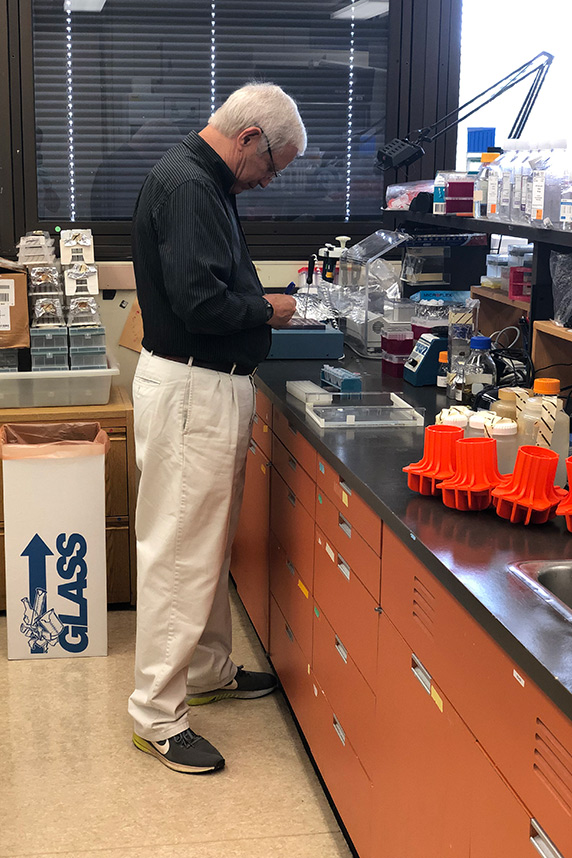 On August 29, Kunkel worked in his lab early in the morning, before the symposium started. (Photo courtesy of Salahuddin Syed)
On August 29, Kunkel worked in his lab early in the morning, before the symposium started. (Photo courtesy of Salahuddin Syed)Later, Kunkel thanked the presenters, whom he called his second family. “I’m very, very impressed with the science I’ve heard,” he said. “It’s a continuation of what has excited me since I started as a scientist.” Kunkel then talked about his current research interests.
“There are two things that really excite me,” he said. “One is the science related to cancer and human diseases and the impact of the environment on the processes that we all study. “[The other is] the consequences of the processes that we study to the evolution of life on earth.”
(Salahuddin Syed, Ph.D., is an Intramural Research Training Award fellow in the NIEHS DNA Replication Fidelity Group.)





